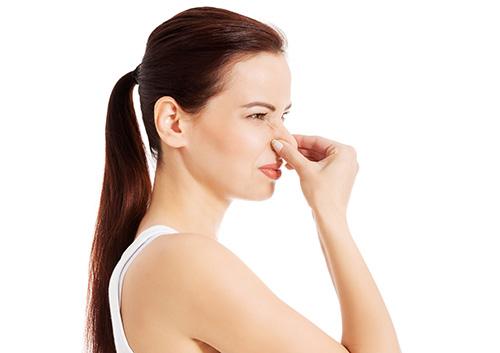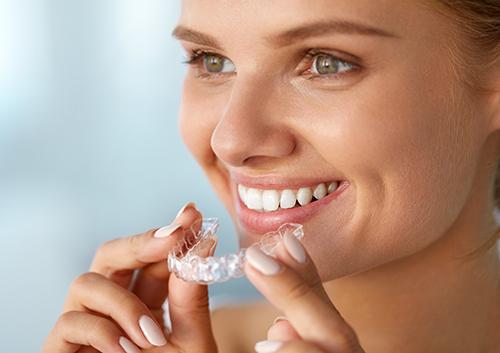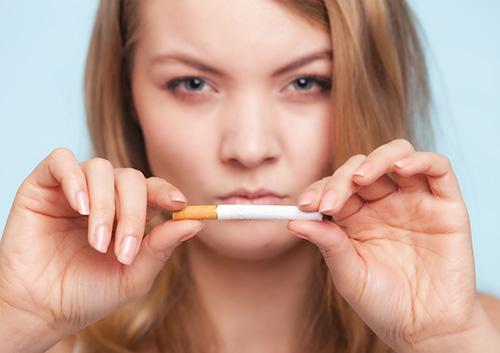Blog
Is soda really bad for your teeth?
- posted: Apr. 24, 2024
You take a sip of soda – and someone remarks, “That’s going to ruin your teeth!” Is that true? Is sweet soda the enemy of a healthy smile? The answer, unfortunately, Read More
Should You Get Dental Veneers?
- posted: Apr. 10, 2024
Dental veneers are a popular treatment to improve the appearance of your smile. the doctor and our team want to help you understand whether this dental option is right for Read More
Oral Cancer Awareness Month
- posted: Apr. 03, 2024
Happy Oral Cancer Awareness Month! We know oral cancer can be kind of a scary topic, but it’s worth using this opportunity to learn about the disease and spread knowledge Read More
When to Begin Dental Care for Your Baby
- posted: Mar. 27, 2024
Children’s oral health differs from the needs of adults in many ways. It’s vital for you to understand what your child needs to keep his or her teeth healthy. the Read More
I have halitosis. What can I do?
- posted: Mar. 20, 2024
Halitosis is the fancy, scientific word for “bad breath.” the doctor and our team know there are several reasons why you may have halitosis; let’s look at a few: Gum disease Read More
St. Patrick's Day
- posted: Mar. 13, 2024
On March 17, everyone has a little Irish in them. St. Patrick’s Day is a joyous celebration of Irish heritage. The holiday originated as a commemoration of Saint Patrick, who Read More
Are your teeth ready for the big day?
- posted: Mar. 06, 2024
Capturing the Moment At Timothy A. Leigh, D.D.S. we know that just about anyone who has taken on the challenge of planning her own wedding could tell you how important the Read More
Best Tips to Make Your Teeth Look Whiter
- posted: Feb. 28, 2024
Your teeth were once naturally white and bright. Wouldn't it be great to keep them that way all of your life? Unfortunately, everyday living can dim our smiles. Food, coffee, Read More
The Stages of Gum Disease
- posted: Feb. 21, 2024
Taking care of your gums is one of the best ways to protect your smile. But sometimes, we treat our gums like an afterthought when it comes to dental care. Read More
The Origins of Valentine's Day
- posted: Feb. 14, 2024
When we think of Valentine’s Day, we think of cards, flowers, and chocolates. We think of girlfriends celebrating being single together and couples celebrating their relationship. We think of all Read More
Why Adults Are Choosing Invisalign®
- posted: Feb. 07, 2024
These days, it’s become more common to see adults at our office getting their teeth straightened with Invisalign clear aligners . . . that is, if you can see them! Read More
Brushing Your Toddler’s Teeth
- posted: Jan. 31, 2024
At Timothy A. Leigh, D.D.S., we know that brushing your toddler’s teeth can be an intimidating prospect. So we’re providing a few tips in the hope of making the process Read More
Caring for Your Smile after Invisalign® Treatment
- posted: Jan. 24, 2024
You have done a lot of work to get the perfect smile. You wore your Invisalign aligner trays and cared for your teeth, and now your treatment is done. You Read More
Generic Clear Aligners vs. Invisalign®
- posted: Jan. 17, 2024
You may have a talent for home repairs. You may be able to rebuild your computer. You may even be able to put together a whole room of furniture armed Read More
Does smoking affect oral health?
- posted: Jan. 10, 2024
By now, everyone knows that smoking is bad for you. But the truth is its broad-reaching health effects are not all known by everyone. This is especially true of oral Read More
Contact Us
Our Location
Find us on the map
Atlantic Dental Care
6661 Main St.
Gloucester, VA 23061, US
Hours of Operation
Our Regular Schedule
8:00 am - 6:00 pm
8:00 am - 5:00 pm
8:00 am - 2:00 pm
8:00 am - 6:00 pm
8:00 am - 1:00 pm
Closed
Closed
















